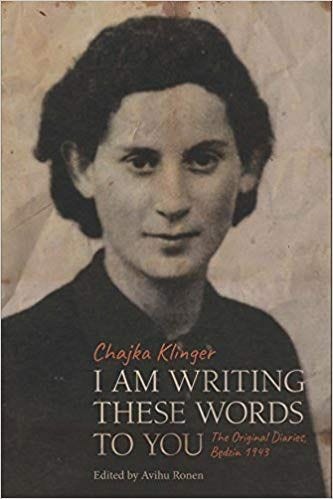The story of this fighter ends very differently from the other women I have been honoring in this series.
At first, I hesitated to include her. I initially thought I wanted to make this series about powerful women who fought the Nazis, survived, emigrated, married and raised children, and lived happily into their nineties.
Yet, the more I read about her, the more my heart ached, and I realized that, for some heroes, the price they pay to fight for life and freedom is unbearable.
This is the story of a heroine without a cape, about sacrifice without decorations, about a life of honor without the happily ever after.
This is the story of Chajka Klinger.
Chajka was born September 25, 1917, in Bedzin, Poland, to a Hasidic family. She attended a Jewish school and was fluent in Hebrew, Polish, and German.
She joined the Zionist youth group Hashomer Ha-tzair at 14. From then on, her focus was to get training and prepare to emigrate to the land of Israel.
In 1938, she became a youth leader and planned to leave in September 1939 when the war broke out. That, of course, would change her plans and her life forever.
In the spring of 1940, she was entrusted with the mission to strengthen the Ha-Shomer ha-Za’ir activity in Bedzin. Klinger and her companion, David Kozlowski, assumed the leadership of the movement in the town.

At the time, Bedzin was located in an area annexed to the German Reich, where Jews lived freely until 1943, as opposed to other heavily ghettoized towns.
With this rare freedom of movement and the couple’s hard work and determination, the movement flourished, attracting about two thousand young people to the area.
That success would not be long-lasting. In August 1942, the Nazis conducted a massive deportation from the entire region.
The destination was Auschwitz.
Chajka lost both parents and one sister there. Another brother died before the war, and a sister perished in a labor camp in 1944. Chajka and her brother would join the resistance.
For Chajka, there was only one way to react to Jewish mass murder: a Jewish uprising. She was ready to fight for her conviction and would pay for it in more ways than one.
They organized the Bedzin underground and started to resist the Nazi deportation of the Bedzin Ghetto. Unfortunately, many courier girls who were essential to the underground missions by establishing contacts with outside movements, smuggling weapons, and bringing critical information were captured and murdered.
Other activists were captured and killed. A group of twenty fighters on their way to join a partisan group was caught, and only one survived. Her boyfriend, David Kozlowski, was also killed along with almost all of her friends, who perished fighting in the Warsaw Ghetto Uprising.
Chajka was devastated by the loss and overwhelmed with grief. She had only one more reason to live: to write and record the history of the Bedzin and Warsaw underground and uprising for prosperity.
She wrote many diaries and clutched them through many borders all the way to Palestine. Her writing was the first written evidence of the Warsaw Ghetto uprising to leave war-torn Europe into the world.
On August 1, 1943, while the Nazis were liquidating the Bedzin Ghetto, they found Chajka with a revolver in her purse. She was brutally tortured and interrogated, but she survived without giving any information about the other members.
She eventually escaped Bedzin, crossed many borders, and arrived in Palestine in March 1944. Shortly after, she married, settled in a Kibbutz, and birthed three children.
She tried to edit and prepare her diaries for publication with no success. She suffered severe depression and had debilitating survivor’s guilt.
On April 18, 1958, on the 15th anniversary of the Warsaw Ghetto uprising, wishing to join her beloved comrades in heaven, Chajka took her own life.
She was only 41 years old.
Her diaries were compiled into a book called I Am Writing These Words to You: The Original Diaries, Bedzin 1943, and published posthumously in 1959.

Her son, Dr. Avihu Ronen, wrote the book Condemned to Life: The Diaries and Life of Chajka Klinger, dedicating 25 years to searching and researching all of his mother’s writings, translating, comparing historical notes, and writing her biography.
He came to know his mother deeply after losing her at 9.
Humanity owes a debt of gratitude to this young woman, who witnessed horrendous brutality and still had the courage to keep fighting for others. When she couldn’t fight with weapons, she fought with words until she couldn’t fight anymore.
